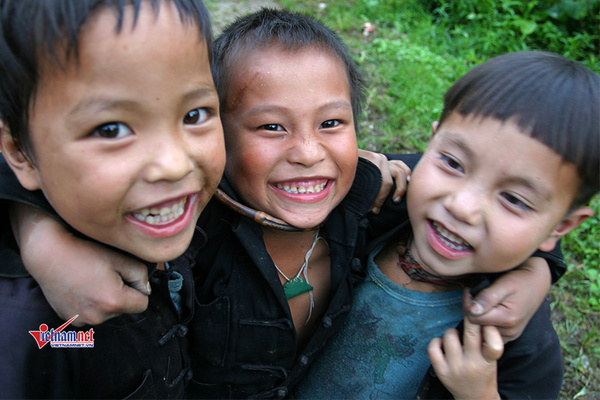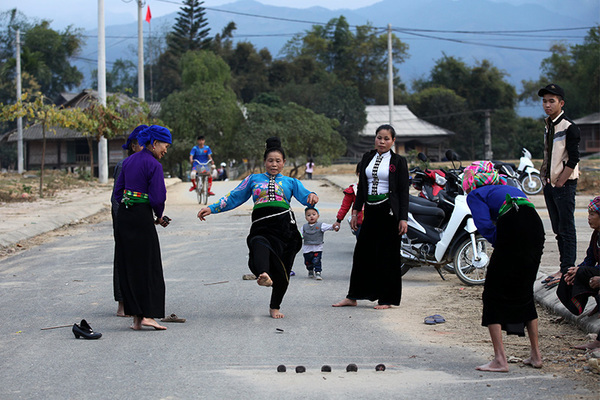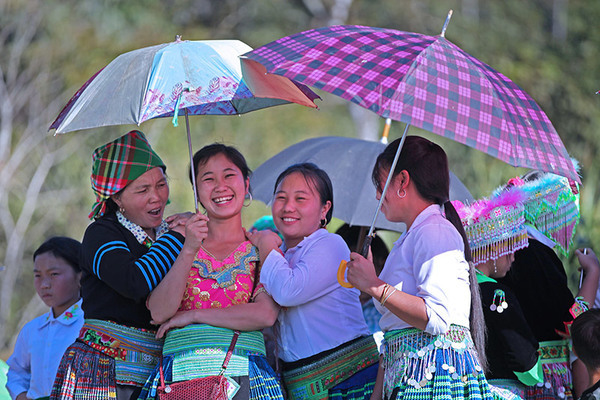 |
|
The characteristics of President Ho Chi Minh and the Party is the inheritance and development of the "natural" human rights of each individual into the natural right of all nation
|
During the Doi Moi period, on the basis of inheriting the achievements of ensuring and promoting human rights in the revolutionary periods in our country and applying and developing creatively the views of Marxism-Leninism, Ho Chi Minh's thought on human rights, as well as acquiring the quintessence of international ideas and law on human rights law, the task of practical summaries and researches have contributed to innovation and development of the Party's awareness of human rights.
Associate Professor and Dr. Nguyen Thanh Tuan gave its analysis: First of all, it is the creative application and development of the views of Marxism-Leninism, Ho Chi Minh's and the Party's thought through the revolutionary stages of human rights.
Karl Marx and Friedrich Engels, based on the review of bourgeois human rights practices and criticism of human rights ideas in bourgeois society, built a new scientific world outlook on human rights. It is the dialectical and historical materialism in order to consider the unification between the natural and social attributes of human nature as well as between theory and practice of human rights. According to them, the mode of production constitutes economic infrastructure, giving birth to and developing human social relationships, such as morality, politics, state, law and human rights.
Karl Marx asserted that if human rights are legalized then they become civil rights according to the principle: “There are no rights without obligations, no obligations without rights”, “Rights can be never at the higher level than the economic regime and the cultural development determined by that economic regime”; corresponding to different eras and different socio-economic bases then have different rights. It means that the concept of human rights is not constant, but changing in history.
 |
|
Human rights, in a comprehensive way, include the right to life, the right to labor and the right to freedom. Photo: LAD
|
Human rights, in a comprehensive way, include the right to live, the right to work and the right to freedom. Because these rights represent three core aspects of human life: First of all, man must exist (right to life); the human being must be active (labor rights); Man must be affirmed, developed (freedom). But under capitalism, private ownership evolved into human rights; and the hierarchy of human rights is profoundly revealed. Human rights are first of all "the will of the ruling class that is put into law". At the same time, human rights are also a result of development in society and the achievements of human struggle are recognized by the state and society in the form of law and are protected by law.
Due to the limitation of "bourgeois rule of law", human rights are only the prerogative of a minority of social members. To practically and comprehensively guarantee human rights, Marxism-Leninism emphasized the struggle for democracy; considered "taking democracy" as the basic goal of the socialist revolution.
On that basis, promoting the socialization of production relations and fully implementing democratic rights, to gradually ensure human rights for the majority of social members.
On that basis, step by step implementing the highest goal of human society - that is to liberate and develop human beings in order to ensure that "the free development of each person is a condition for the free development of everybody".
 |
|
The creative use and development of President Ho Chi Minh and the Party is not to forget the rights of any social class
|
Human rights under socialism, first of all, are practically guaranteeing the rights of existence and development (including economic, social and cultural rights). Human rights under socialism must be comprehensive: ensuring all civil, political, economic, social and cultural rights; guaranteeing both individual and collective rights; ensuring freedom and fairness, equality and human rights in accordance with civil rights, as mentioned in the "Declaration of interests of exploited laborers" by V.I Lenin, drafted in January 1918.
In "The Platform for the Nation" (1913), V.I Lenin affirmed that the basic national rights are democratic rights, including equality, self-determination rights and the right to unite workers of all ethnic groups. These rights are also the principles for maintaining peace and friendship among peoples, aiming to link the exercise of these rights with the promotion of living standards, health protection, cultural education and respect for human rights.
On the basis of Marxism-Leninism's stance, President Ho Chi Minh and the Communist Party of Vietnam, through the revolutionary stages, have approached the issue of human rights from the rights of the people, whose country was under colonial rule, and the rights of workers. Since then, President Ho Chi Minh and the Party have affirmed: Socialism is the best regime to ensure human rights for the people of Vietnam.
The creative use and development of President Ho Chi Minh and the Party is not to forget the rights of any social class, from children, teenagers, to young people, women, old people and workers, peasants, soldiers, intellectuals, ethnic minorities and religious followers, to people with disabilities... President Ho Chi Minh and the Party determined that if the people are the master of the country then they master the ownership of the country, and considered that the individual right to be associated with the collective right, with the rights of the whole society; ensuring the rights of the Vietnamese people, and respecting the rights of other peoples.
In particular, President Ho Chi Minh asked officials and party members to be "public servants", examples in serving the interests of the people; set out the principle of "having the spirit of the rule of law" in organizing the construction and operation of democracy with the State of the people, by the people and for the people; in which, ensuring human rights is the first responsibility of the Party and State.
The characteristics of President Ho Chi Minh and the Party is the inheritance and development of the "natural" human rights of each individual into the natural right of all nations; summarizing human rights core values into the values of independence - freedom - happiness for each person and all people; in which, "if the country is independent but the people do not enjoy the happiness of freedom, then independence does not mean anything".
Secondly, applying and developing creatively the quintessence of human thought on human rights.
Dialectical and historical materialism, typically the Marxist-Leninism and Ho Chi Minh thought, approaches to human rights in dialectical relationship between theory and practice.
Specifically, in terms of theory, human rights have the natural - social features of human nature, showing the ideal of comprehensive liberation and development of free humans. In practice, the process of forming and ensuring human rights is always socially specific, such as national cultural traditions, the material-spiritual production level of society and class.
Meanwhile, other contemporary theories approach the issue of human rights in a somewhat superficial way. For example, the natural human rights theory is considered the universal human rights theory, but when expressing Western human rights values, it often encounters indifference and reaction when it is applied in practice with different cultural traditions of peoples in the world.
The concept of legal human rights does not see the necessary value of ethics and culture in ensuring human rights. Meanwhile, cultural relativism emphasizes, sometimes inclines to cultural traditions in ensuring human rights. The overall consequence of such superficial approaches is ignorance, breaching or justification for weaknesses in human rights practice.
Thirdly, practical summarizing, generalizing theoretical views on human rights in the renovation period.
Party documents, such as Platform for building the country during the transition to socialism (1991), the supplemented Platform in 2011, resolutions of Party Congresses and Directive No. 12-CT/TW, dated 12 July 1992 of the 7th Party Central Committee Secretariat, Directive 41/2004/CT-TTg dated December 2, 2004 of the Prime Minister, Directive No. 44-CT/TW, dated July 20, 2010, of the 10th Central Party Central Committee Secretariat, summarized basic views on human rights.
Minh Van
 The creative use and development of President Ho Chi Minh and the Communist Party of Vietnam is not to forget the rights of any social class.
The creative use and development of President Ho Chi Minh and the Communist Party of Vietnam is not to forget the rights of any social class.